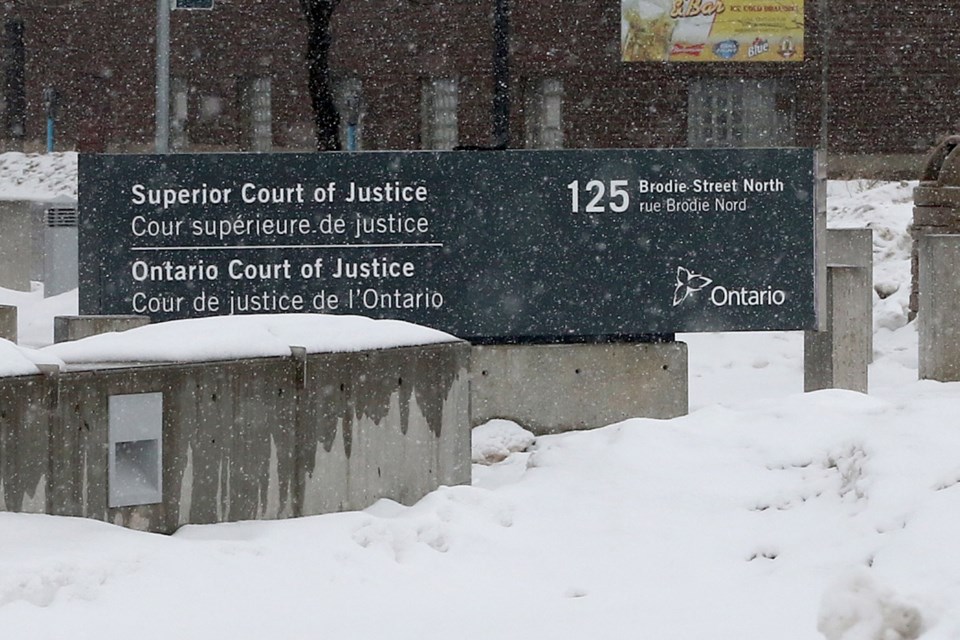THUNDER BAY - A judge has ruled the Charter Rights of a man charged with drug trafficking were breached when he was unable to speak with a lawyer for more than seven hours, but the infringement was not serious enough to warrant the exclusion of the evidence seized by police.
The accused was arrested in February 2022 at the Thunder Bay International Airport after security officials uncovered what appeared to be narcotics in a suitcase.
The Thunder Bay Police Service was contacted and a search of the suitcase uncovered 1.11 kilograms of cocaine and 51 grams of crack cocaine.
The accused was placed under arrest and charged with possession for the purposes of trafficking and possession of the proceeds of crime under $5,000.
In November 2023, a hearing was held before Justice Chantal Brochu, where the accused argued his rights under the Canadian Charter of Rights and Freedom were violated after his arrest and that the evidence seized should be excluded because it was collected in the breach of those rights.
Brochu released her decision in December, finding that the accused’s Charter Rights were violated, but the breach did not reach the level of a systemic failure.
The Charter violation involved the accused’s right to speak with a lawyer. According to counsel on behalf of the accused, the total delay amounted to seven hours and 49 minutes.
Following the accused being placed under arrest, he was advised of his right to counsel and he said he wished to speak to a lawyer.
The accused was transported to the Thunder Bay Police Service headquarters where he was booked and given a list of lawyers. No lawyers he contacted answered and one of the arresting officers then tried contacting duty counsel at 11:51 a.m. There was no answer and a message was left.
The officers continued with the investigation, seizing several items from a south side address including a scale with white power substance on it and a magazine from a handgun.
A second call was placed to duty counsel at 6:50 p.m. that same day and the accused spoke with a lawyer.
Prior to the accused speaking with duty counsel, one of the arresting officers admitted to questioning the accused. The Crown conceded that this represented a breach by the officer by not holding off questioning until the accused spoke with counsel.
The Crown added that it would not be relying on any statements made by the accused during this questioning and Brochu said there doesn’t appear to be any evidence that the accused said anything at all.
But Brochu did find that the accused’s Charter Rights were violated when officers failed to hold off on any questioning of the accused and because of the unexplained delay of more than seven hours before he had access to counsel.
“I do note that the officers partially complied with their obligations,” Brochu said in her decision.
“They did try to implement [the accused’s] right to counsel, but their failure to follow through, and make sure that there was timely contact with counsel, results in a breach.”
And while Brochu called this a serious violation, she did not find that it was systemic in nature, but rather officers who “dropped the ball” by failing to follow up on whether the accused had been put in contact with a lawyer.
“In the circumstances of this case and based on the evidence offered, although serious, I do not find that this was a systemic issue,” Brochu said.
“It has not been established that the breach was deliberate or intentional.”
Brochu said based on the balance of factors, the exclusion of evidence as requested by the accused was not warranted in this case.
“The breach itself is unrelated to the seizure of the evidence,” she said. “The police did not act in bad faith. Although they did question the accused, it was fleeting in nature, and they did not obtain any incriminating statement from him. The evidence was lawfully obtained and not casually connected with the breach.”
